news
Just In : I challenge global community to pay attention to the root cause of poverty and instability in Africa’s, Says Tinubu
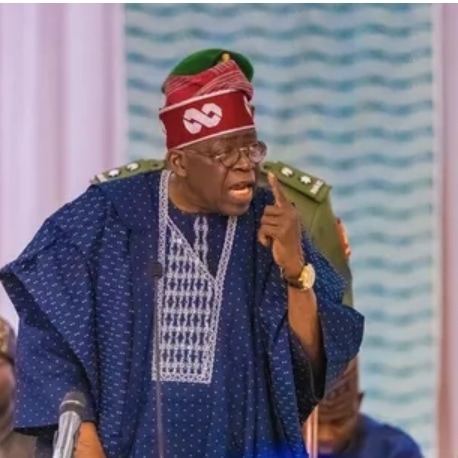
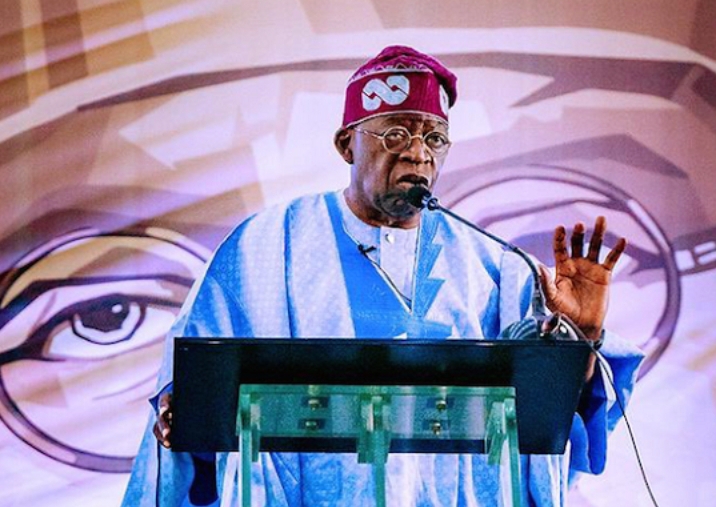 …He explains reasons for removing fuel subsidy, managing FX market
…He explains reasons for removing fuel subsidy, managing FX market
Experienced, Reliable, and Professional. Join a regulated broker with a stellar reputation
President Bola Tinubu has called on the global community to pay attention to the root causes of poverty and instability in Africa’s Sahel region, emphasising the need for economic collaborations and inclusiveness to achieve stability and growth.
President Tinubu spoke on Sunday, April 28, at the Special World Economic Forum in Riyadh, Saudi Arabia, calling on bigger economies of the world to actively participate in the promotion and prosperity of the region to achieve peace, stability, and economic growth.
Tinubu called for global collaboration and inclusiveness to drive capital formation and economic opportunities in Africa, particularly in the Sahel region.
He also told the Forum how, as the Chairman of the ECOWAS Authority of Heads of State and Government, he has used Nigeria’s influence to discourage unconstitutional changes of government and ease sanctions, emphasizing the need for trade and economic prosperity in the region.
Tinubu stressed that “the fear of lack of capital in Africa” and “stigmatization” must be addressed through inclusive programs that drive economic opportunity.
He urged the global community to “look at the fundamentals of the problem” and “go to the root” of the issues facing the Sahel region and ECOWAS countries.
“The rest of the world needs to look at the fundamentals of the problem; not just ordinary geopolitically but it has to go to the root. Has the world paid attention to the poverty level of Sahel, and the rest of ECOWAS? Have they helped the infusion of capital and paid adequate attention to the exploitation and opportunities availed by the mineral resources available?” President Tinubu asked.
He emphasised the importance of economic collaboration, saying, “The capital formation that is necessary to drive the economy, like agriculture, food security, innovation, and technological advancement must be an inclusive programme of the entire world. No one should be left behind.”
President Tinubu also highlighted Nigeria’s efforts to manage economic challenges, including the removal of fuel subsidies and currency management, which he said were necessary to reset the economy and promote growth.
He justified the removal of the fuel subsidy in Nigeria, stating that it was a necessary action to prevent the country from going bankrupt and to reset the economy towards growth.
He acknowledged that the subsidy removal was difficult and had drawbacks, but argued that it was in the best interest of the country, but also revealed that the government implemented parallel arrangements to cushion the impact on the vulnerable population.
“At the time, it ought to be taken decisively, that was necessary for the country. Yes, there have been drawbacks. Yes, there was the expectation that the difficulty would be felt by a greater number of people, but, of course, I believed it was their interest that was the focus of government.
“It is easier to manage and explain the difficulties, but along the line, there was a parallel arrangement to cushion the effect of the subsidy removal on the vulnerable population of the country.
“We shared the pain across the board. We cannot but include those who are very vulnerable. Luckily, we have a very vibrant youthful population interested in discoveries by themselves and highly ready for technology, good education; and committed to growth.
“The currency management… was necessary, equally to remove the artificial element of value in our currency. Hence, our local currency finds its level, competes with the rest of the world’s currencies, and removes arbitrage, corruption and opaqueness. That, we did.
“At the same time, that is a two-engine problem and a very turbulent situation for the government. But we are able to manage that turbulence because we prepared for inclusivity in governance and rapid communication with the public, to (really) see what is necessary and what you must do”, he said.
The President also emphasized the need for stability and economic prosperity in the region, saying, “We need to trade with one another, not fight each other. It is very, very necessary and compulsory for us to engender growth, stability, and economic prosperity for our people.”
The overall goal of the Forum is to facilitate constructive dialogue, identify concrete solutions, and promote collaborative action to address the critical issues facing the global economy, such as geopolitical tensions, inflation, supply chain disruptions, and the impact of climate change
news
Airlin Advocacy Commissions Jos Office, Targets 7m Members By Next Elections,Says Mohammed Gamawa
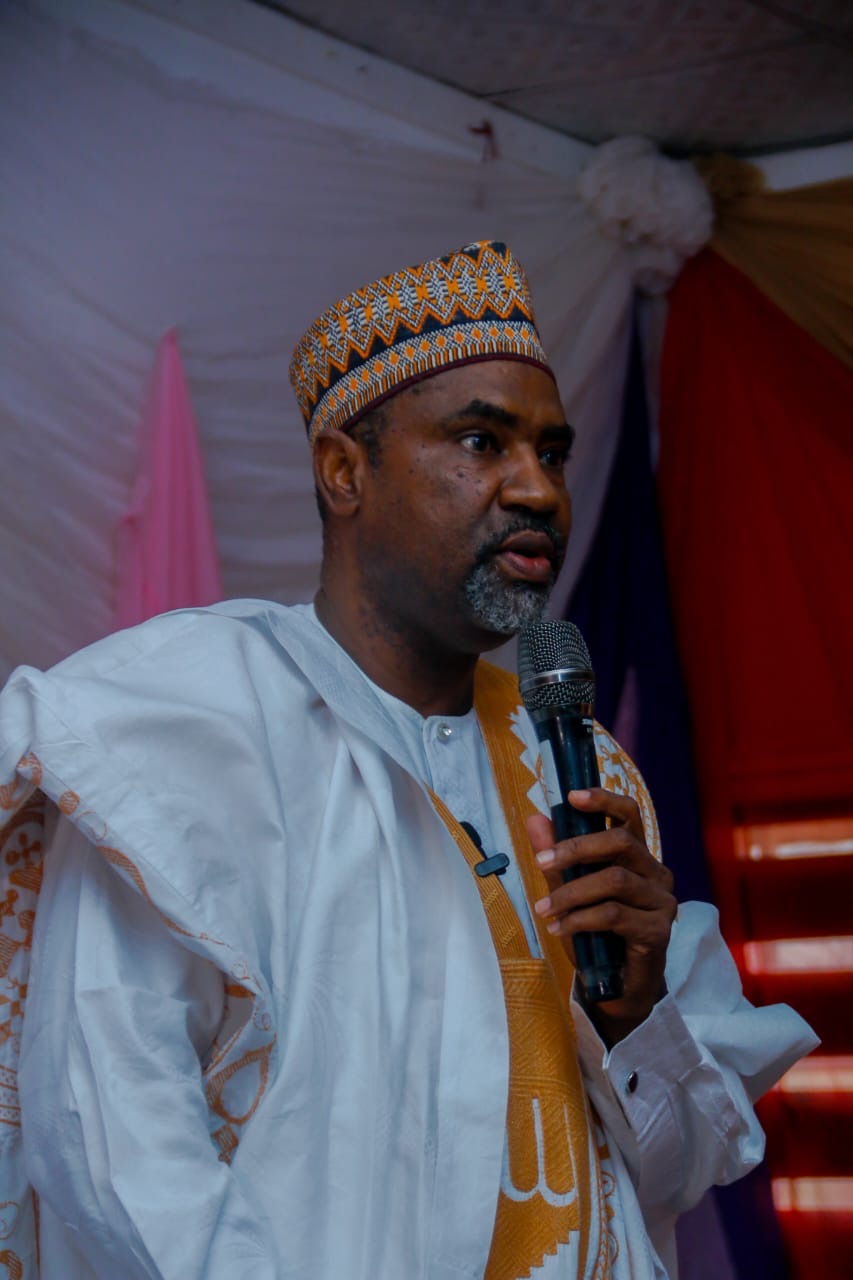
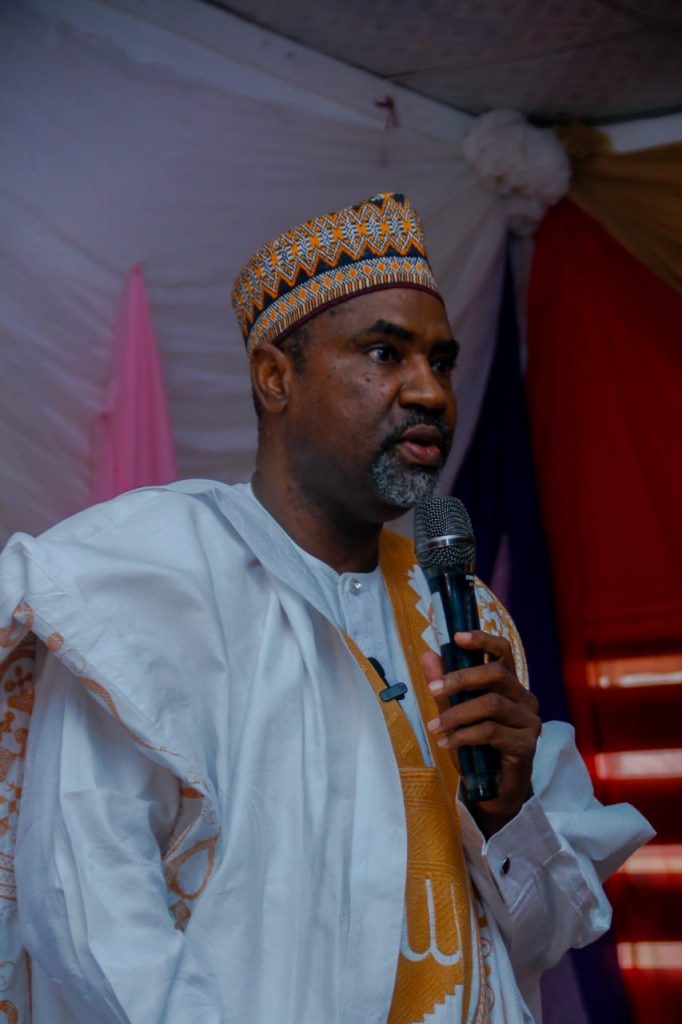 During the inauguration ceremony, the National Chairman of Airlin, Mohammed Gamawa, delivered a keynote address, emphasizing the organization’s commitment to educating Nigerians on their civic rights and responsibilities.
During the inauguration ceremony, the National Chairman of Airlin, Mohammed Gamawa, delivered a keynote address, emphasizing the organization’s commitment to educating Nigerians on their civic rights and responsibilities.
According to Gamawa, Airlin aims to bridge the gap between citizens and the principles of the rule of law by fostering a society where people understand not only their rights but also what is expected of them by the country.
“Our goal is to foster interaction among Nigerians, promote respect for the rule of law, and ensure citizens know their rights and civic responsibilities — such as voting to elect future leaders not based on materialism but based on integrity and competence,” Gamawa stated.
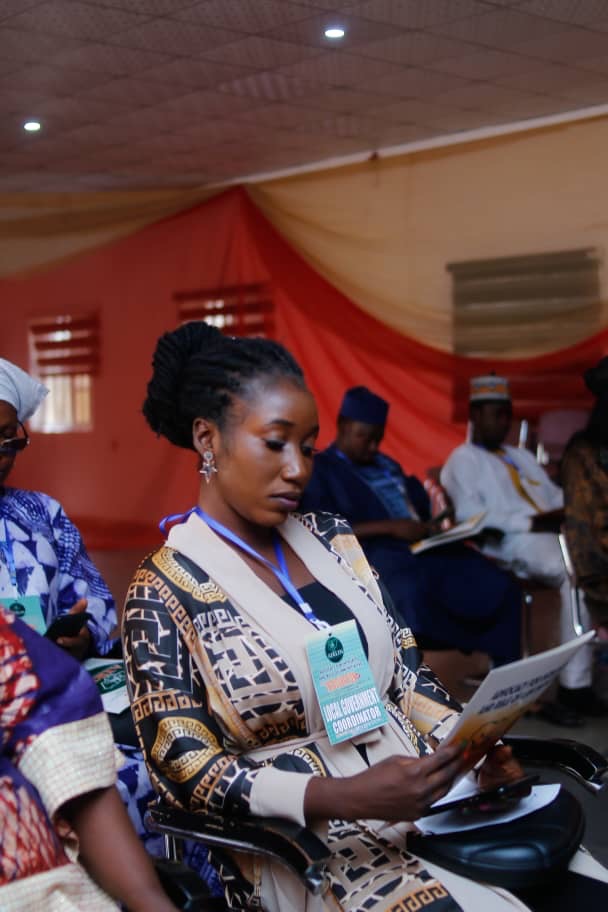
He added that understanding and exercising one’s franchise, especially during elections, must go hand in hand with being law-abiding and fully aware of civil responsibilities.
As part of its mission, Airlin is currently targeting 19 states in Northern Nigeria, with Jos becoming the 15th state to be commissioned.
The ceremony also featured the appointment of state and local government coordinators who will help drive the organization’s grassroots advocacy efforts.
With a current membership base of 2.1 million Nigerians aged 18 and above, Airlin projects a significant growth trajectory, aiming to reach 7 million members before the next general elections.
news
Nothing new in FBI report on Tinubu, says Onanuga
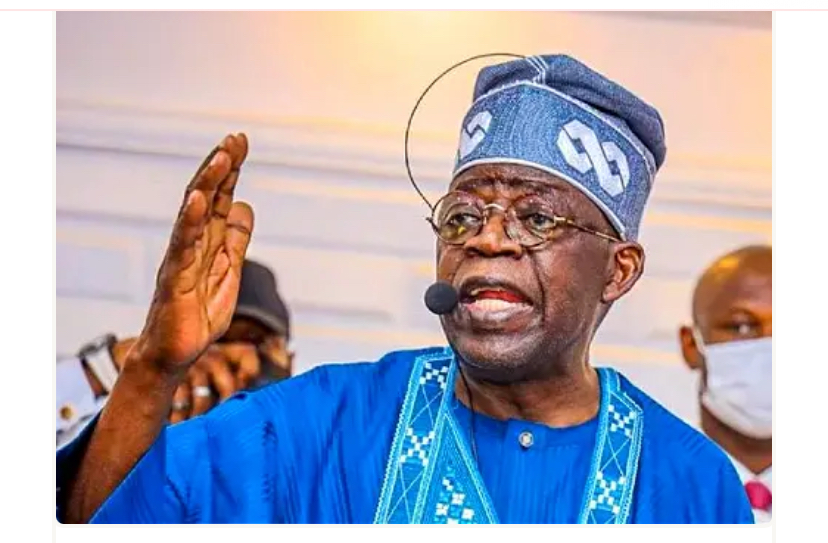
 Senior Special Adviser to the President on Information and Strategy Bayo Onanuga has dismissed a report of a United State (U.S.) court ordering two law enforcement agencies to release information on President Bola Ahmed Tinubu during a “purported federal investigation in the 1990s.”
Senior Special Adviser to the President on Information and Strategy Bayo Onanuga has dismissed a report of a United State (U.S.) court ordering two law enforcement agencies to release information on President Bola Ahmed Tinubu during a “purported federal investigation in the 1990s.”
In a tweet on his verified X handle, Onanuga told those agitated by the directive that there would be nothing revealing in the anticipated report.
In an April 9 ruling, District Court for the District of Columbia Judge, Beryl Howell ordered the Department of State, Federal Bureau of Investigation (FBI), Internal Revenue Service (IRS), Drug Enforcement Administration (DEA) and the Central Intelligence Agency (CIA) to release the information to Mr. Allan Greenspan.
The information being sought by Greenspan was classified as “confidential information” generated during a “purported federal investigation in the 1990s.”
Judge Howell said that protecting the information from public disclosure “is neither logical nor plausible.”
Commenting on the ruling, Onanuga said: “There is nothing new to be revealed. The report by Agent Moss of the FBI and the DEA report have been in the public space for more than 30 years. The reports did not indict the Nigerian leader”, Onanuga said yesterday.
He said that counsel to the President have been “examining the ruling”.
news
Oyetola Leads Nigeria’s Strategic Bid for IMO Council Seat, Aiming for Global Maritime Influence
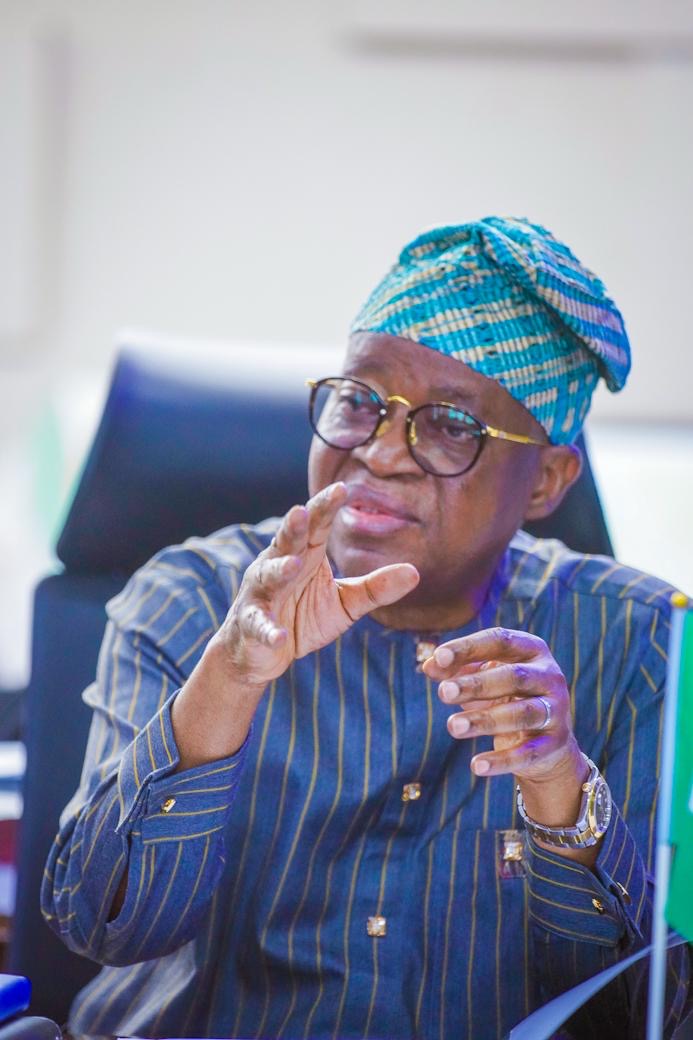
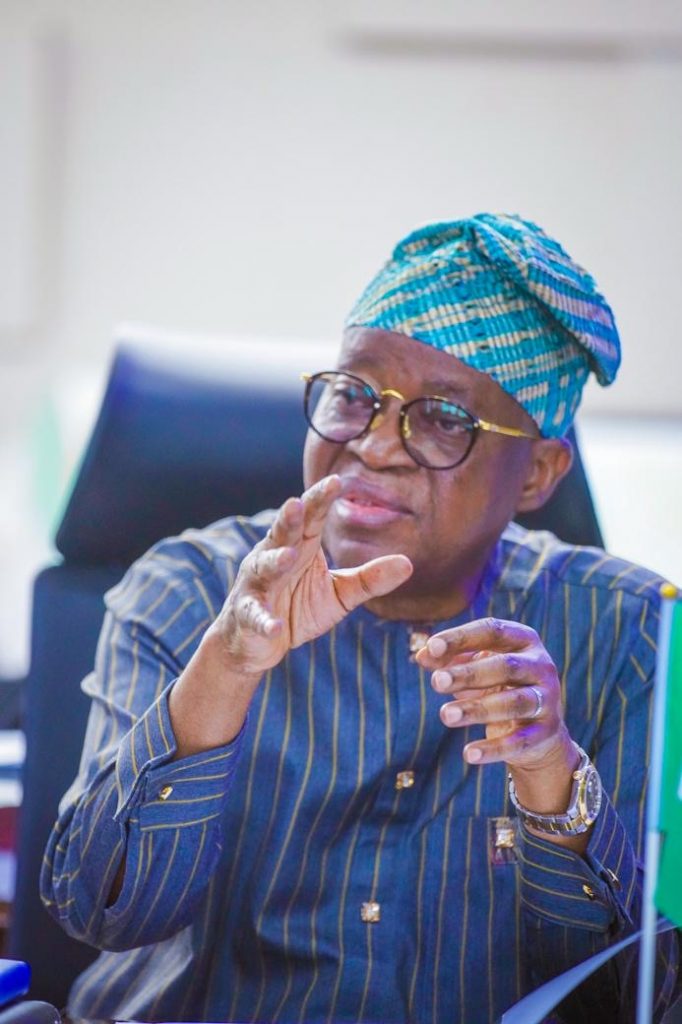 Nigeria is setting sail towards a greater role in international maritime affairs as it bids for election into Category C of the International Maritime Organization (IMO) Council.
Nigeria is setting sail towards a greater role in international maritime affairs as it bids for election into Category C of the International Maritime Organization (IMO) Council.
Leading this ambitious push is the Honourable Minister of Marine and Blue Economy, His Excellency Adegboyega Oyetola (CON), whose vision is to position Nigeria as a dominant force in global shipping and maritime governance.
The IMO, a specialized United Nations agency responsible for regulating international shipping, holds its Council elections later this year. Category C is specifically reserved for nations with significant interests in maritime transport and trade, providing them with a platform to contribute to shaping global maritime policies. For Nigeria, securing a seat is not just a diplomatic pursuit it represents a strategic leap forward for economic growth, regional leadership, and maritime security.
At the heart of this campaign is Nigeria’s intention to amplify its voice in international maritime decisions. Membership in the IMO Council would afford the country a pivotal role in the formulation of regulations and policies that affect shipping, safety, environmental protection, and trade. This influence would allow Nigeria to safeguard both its national interests and those of the broader West African sub region.
Economic prospects tied to the blue economy form another cornerstone of Nigeria’s bid. With a coastline stretching over 850 kilometers and a maritime domain rich in resources, Nigeria is aggressively advancing its blue economy agenda. A seat at the IMO table is expected to draw foreign investment, stimulate port infrastructure development, and enhance trade efficiency all in line with President Bola Tinubu’s broader strategy for economic diversification.
Maritime security is also high on the agenda. Nigeria, which has made considerable strides in curbing piracy in the Gulf of Guinea, sees IMO Council membership as a means of deepening international collaboration, adopting global best practices, and enhancing safety standards along its waterways.
The campaign also underscores Nigeria’s commitment to human capital development. By aligning more closely with the IMO, Nigeria aims to provide its maritime professionals especially young people with increased access to global training programs and capacity building initiatives. This would help nurture a new generation of skilled seafarers, engineers, and administrators capable of competing on the world stage.
Nigeria’s regional leadership is also in focus. As Africa’s largest economy, the country seeks to use its potential IMO seat to drive greater cooperation among African maritime nations, promote sustainable development, and project a unified continental voice in international maritime diplomacy.
In addition, Nigeria anticipates increased access to technical support and maritime innovation through IMO engagement. This includes advancements in shipping technology, logistics modernization, and enhanced port management critical components for a thriving maritime industry.
Oyetola’s Vision and Commitment
Oyetola, since his appointment, has consistently emphasized the need for Nigeria to embrace its maritime identity and assert its global relevance. His advocacy for Category C membership has been described by stakeholders as a bold and necessary step in unlocking the full potential of the sector.
“Nigeria must take its rightful place on the global maritime stage. Our waters, our people, and our potential deserve nothing less,” Oyetola affirmed during a recent stakeholders’ engagement on the bid.
As the IMO elections approach, there is growing optimism that Nigeria’s strategic location, extensive maritime assets, and clear policy direction will earn it a seat at one of the most influential tables in global shipping. The journey to Category C may be competitive, but with strong leadership at the helm, Nigeria is navigating with purpose and promise.
Jamiu Omookose
-

 news4 years ago
news4 years agoUPDATE: #ENDSARS: CCTV footage of Lekki shootings intact – Says Sanwo – Olu
-

 news1 year ago
news1 year agoEnvironmental Pollutions : OGONI COMMUNITY CRIES OUT, THREATENS TO SHUT DOWN FIRSTBANK,SHELL OIL COMPANY OPERATIONS FOR NOT PAYING COURT AWARD
-
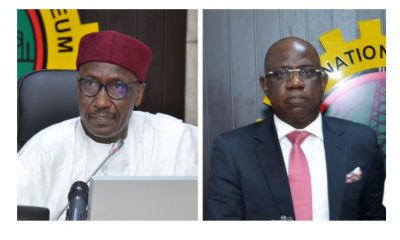
 news2 weeks ago
news2 weeks agoBreaking : TInubu appoints Bashir Ojulari as new CEO group of NNPC and GMD mele kyari get sacked, Says Onanuga
-
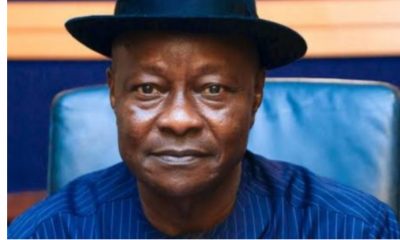
 news3 weeks ago
news3 weeks agoUpdate : Fubara ordered bombing of Rivers Assembly, I am not under duress I resigned, Says ex-Rivers HoS Nwaeke
-
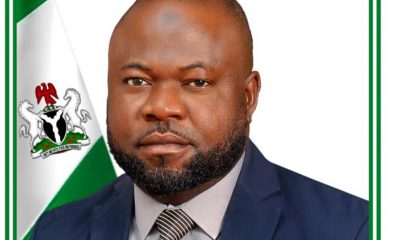
 interview2 weeks ago
interview2 weeks agoNIGERIA MECHANIZED AGRO EXTENSION SERVICE PROJECT, A STRATEGIC MOVE TO ALLEVIATE POVERTY – DR. AMINU ABDULKADIR
-
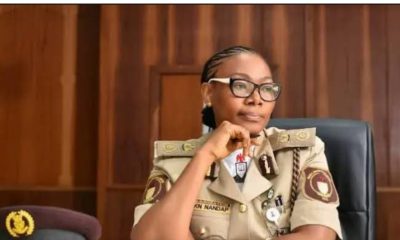
 news2 weeks ago
news2 weeks agoTinubu commended Nandap for her leadership, extends Comptroller-General tenure till 2026, says Onanuga
-

 news4 days ago
news4 days agoNothing new in FBI report on Tinubu, says Onanuga
-

 news1 week ago
news1 week agoUpdate : FG confirms continuation of crude, refined product sales in Naira initiative, Says Wale Edu


